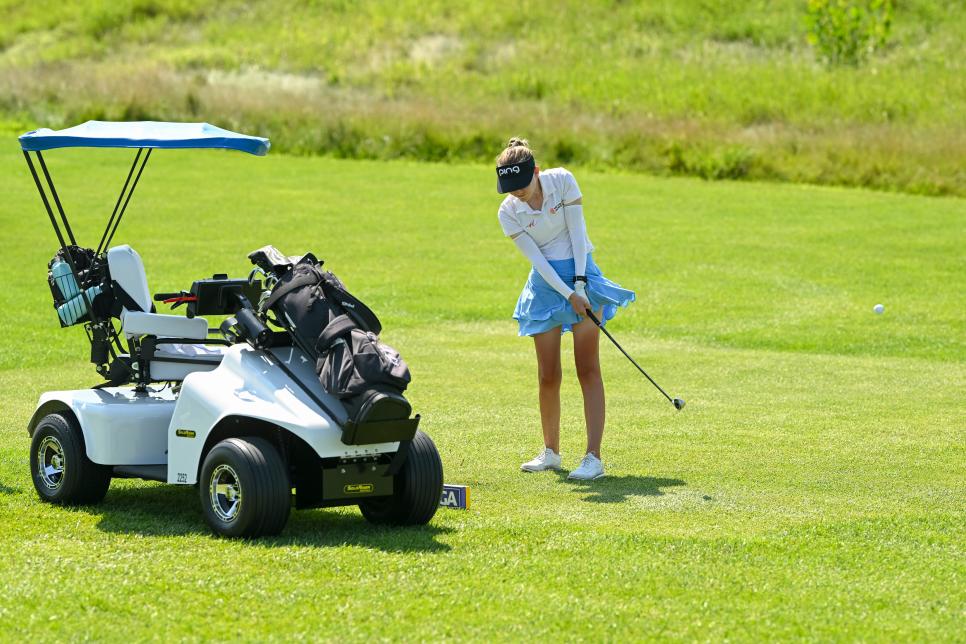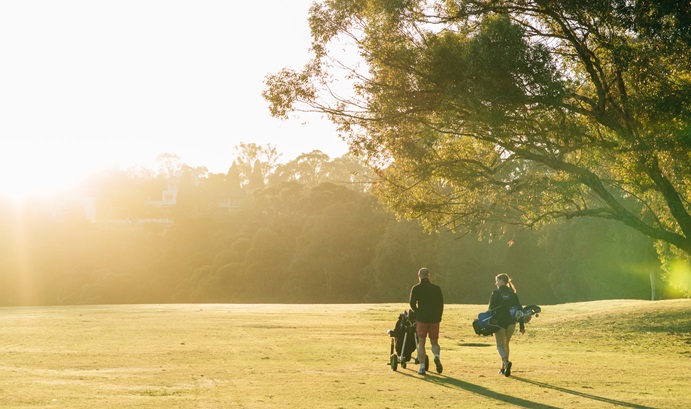Golfer once struggled to finish 9 holes; now she’s a USGA champion – Australian Golf Digest

- by Admin
- July 10, 2024

A year ago, Bailey Bish played in her first U.S. Adaptive Open and struggled to finish 18 holes each of the three days. With a neurological condition contracted in high school that limits the use of the right side of her body, the 24-year-old from Tucson, Ariz., takes a cart to traverse the course and a crutch to help her keep her balance.
Understanding her fight to even be on the course made the cheers all the more meaningful on Wednesday when Bish captured the overall women’s title in the 3rd Adaptive U.S. Open in Newton, Kan., and celebrated on the 18th green at Sand Creek Station with friends and peers.
“We have an amazing camaraderie in the adaptive golf community,” Bish said. “Having their support with the win like this is absolutely incredible. They saw me when I wasn’t able to play nine holes back-to back.”
In the men’s overall competition, England’s Kipp Popert, who has cerebral palsy, won his second straight Adaptive title by shooting 14 under over three rounds in the Neurological Impairment division. South Korea’s Simon Seugmin Lee, who captured the inaugural men’s championship in 2022, was second at 10 under.
Bish, also competing in Neurological Impairment, opened the tournament by setting the Open’s women’s scoring record with a two-under-par 69. She followed with a 78, and then, when it looked like she might fade by opening the third round four over through three holes, Bish rallied by making her first-ever eagle en route to shooting 77. With an eight-over total, she beat past overall champion Kim Moore (Lower Limb Impairment) by four shots.
“I think showing my growth is really inspiring to many people in the community,” Bish said.
Bailey Bish hits a shot during the final round of the U.S. Adaptive Open.
Kathryn Riley
Bish was living a normal teenage life and loving her chosen sport of basketball as a high school freshman when a sinus infection led to her contracting encephalitis. The result was Bish suffering from dystonia, a neurological disorder that causes involuntary muscle contractions. She also has postural orthostatic tachycardia syndrome (POTS), a condition that causes its sufferers to experience an increased heart rate and possible fainting.
“Not being able to play basketball was a really hard blow for me,” Bish told a Tucson television station in 2023.
She grew up near a golf course, but never played until after her illness. Bish has since begun competing in national adaptive events.
If Bish did not have enough to overcome, she also has issues with her vision. On Wednesday, she said her eyes were “just little off” at the start of the round, so she ended up putting in what are called Syntronic eyeglass lenses, which are said to stimulate the brain and help to restore the balance within the body’s nervous system.
“They help—it’s hard to describe,” Bish said. “My optometrist does it really well. It helps rebalance the brain and make it so what I’m actually seeing is what my brain is processing.”
Bish will take a lot away from a week that was the biggest in her golfing life.
“I learned that it’s hard to play golf, and even if there is challenges, you can push back and keep going,” she said. “The mistakes will get overwritten by other accomplishments.”
This article was originally published on golfdigest.com
The Latest News
-
January 2, 2025Tiger Woods, other tour pros offer tributes after the passing of popular golf writer Steve DiMeglio – Australian Golf Digest
-
January 2, 2025Where to watch Australia vs. India 5th Test: Free live stream, free-to-air channel, start time for cricket match | Sporting News Australia
-
January 2, 2025Minister dismisses Australian-style social media ban for under-16s
-
January 2, 2025Djokovic pokes fun at online theory after breezing into Brisbane quarters
-
January 2, 2025Why is the Australian dollar falling – and what does it mean for interest rates, travel and the economy?





